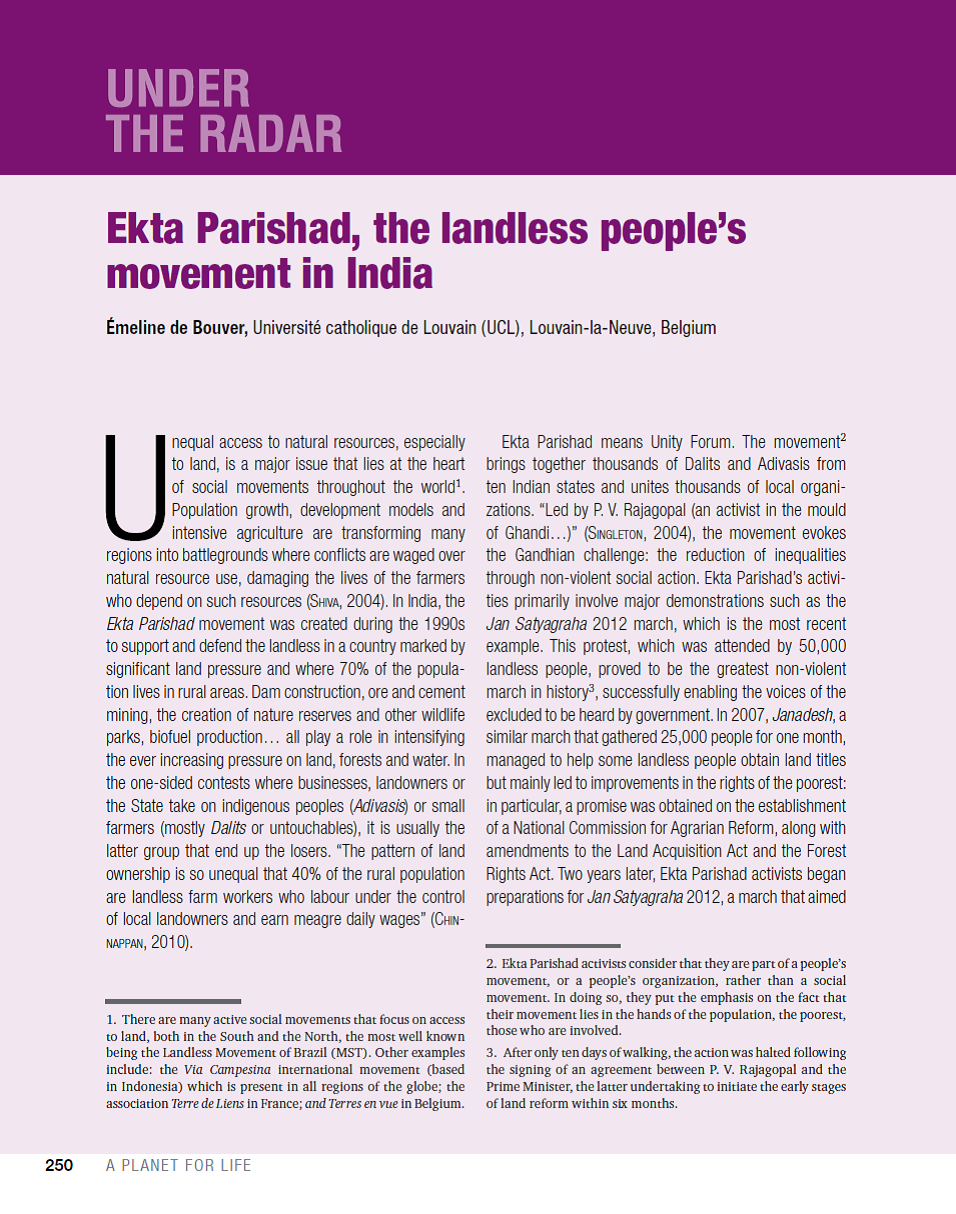Resource information
Unequal access to natural resources, especially to land, is a major issue that lies at the heart of social movements throughout the world. Population growth, development models and intensive agriculture are transforming many regions into battlegrounds where conflicts are waged over natural resource use, damaging the lives of the farmers who depend on such resources. In India, the Ekta Parishad movement was created during the 1990s to support and defend the landless in a country marked by significant land pressure and where 70% of the population lives in rural areas. Dam construction, ore and cement mining, the creation of nature reserves and other wildlife parks, biofuel production… all play a role in intensifying the ever increasing pressure on land, forests and water. In the one-sided contests where businesses, landowners or the State take on indigenous peoples (Adivasis) or small farmers (mostly Dalits or untouchables), it is usually the latter group that end up the losers.
The Ekta Parishad experience has shown that far-reaching demonstrations are only the tip of the iceberg. This article mainly discusses the submerged part: the analysis of the movement suggests that large mobilizations are only one step in the process of social change.


